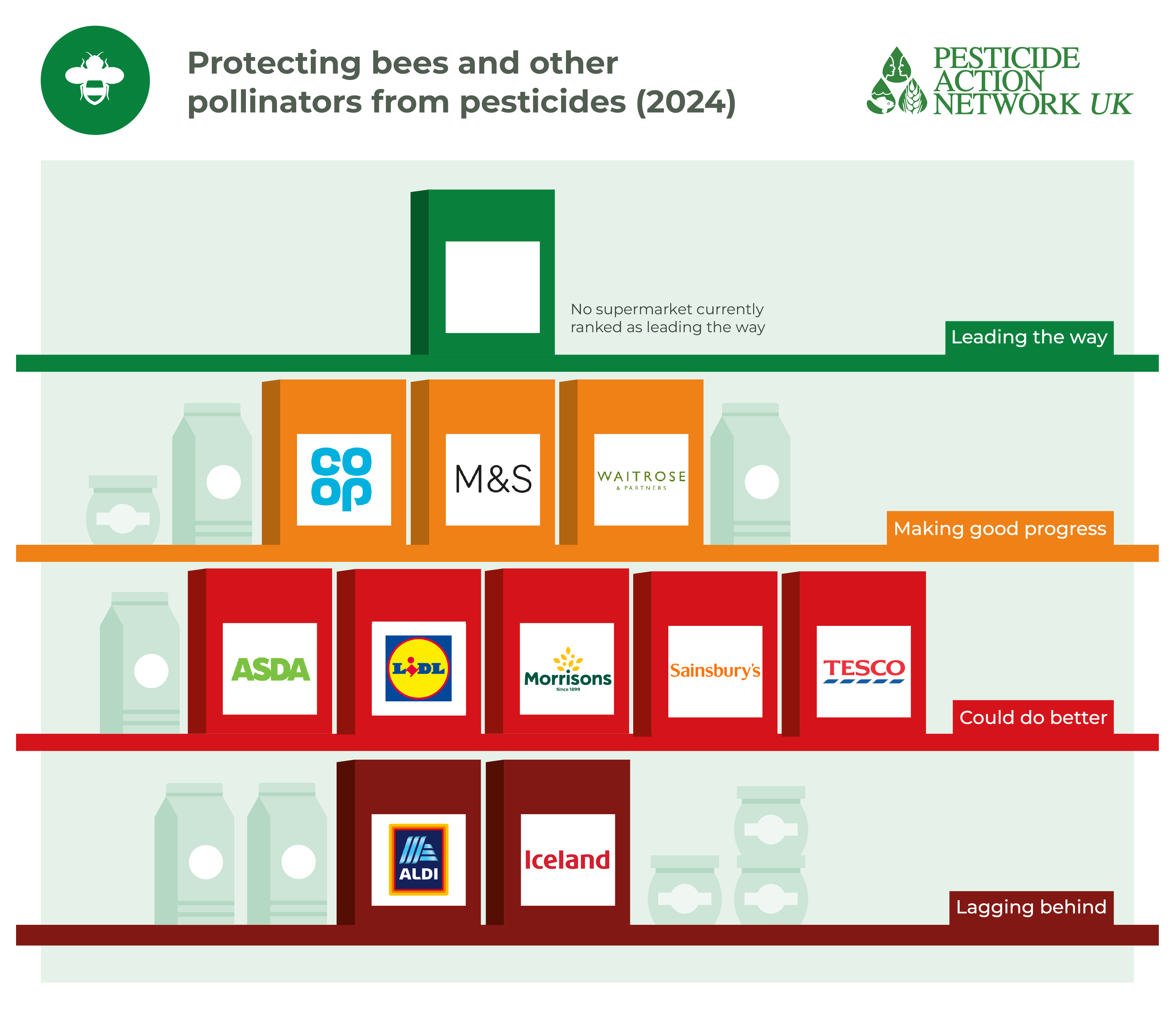
Pesticides are a key driver of declines in populations of bees and other pollinators such as butterflies. Honeybees, wild bees and other key pollinators – which pollinate 70 types of crop in the UK – are suffering dramatic losses with some bee species at risk of extinction.
Given that much of this damage is being done in the name of food production, UK supermarkets have a key role to play in reversing this worrying trend. At the very least, they must take measures to ensure that their global supply chains ‘do no harm’ to our already-struggling pollinators. Supermarkets also have the opportunity to drive positive change by requiring their suppliers to monitor pollinator activity and adopt pollinator-friendly practices, such as maintaining uncultivated land along field margins.
In recent years, much of the debate around the impact of pesticides on bees and other pollinators has focused on a class of chemicals known as ‘neonicotinoids’ which have been linked repeatedly to declines in global bee populations. In 2018, the EU and UK banned three neonicotinoids (clothianidin, imidacloprid, and thiamethoxam), and an additional one (thiacloprid) in 2020. As a result, farmers from across Europe and the UK) are not permitted to use these chemicals, but they are still widely used elsewhere in the world. This means that many products on UK supermarket shelves will have been grown in a way which is extremely harmful to bees. In other words, we are exporting our environmental footprint to countries with weaker standards.
While recent attention has largely been on neonicotinoids, there are a number of other pesticides which can be particularly toxic to bees (for example, fipronil and sulfoxaflor). Supermarkets should be making efforts to phase out these chemicals from their global supply chains, with the aim of eliminating their use altogether and helping their suppliers to switch to non-chemical alternatives.
Currently, most UK supermarkets do have some measures in place to protect pollinators but fall short of ensuring that bees and other pollinators are not harmed by their operations. In fact, while most supermarkets have placed some kind of restrictions on bee-toxic neonicotinoids, they do remain in use within the global supply chains of all of the UK’s top ten supermarkets. We are calling for UK supermarkets to commit to ending the use of all highly bee-toxic pesticides throughout their global supply chains by 2030 at the very latest.
There are also two quick wins for supermarkets that would help protect UK wildlife:
- All supermarkets continue to use pesticides, mostly weedkillers, around their stores and car parks. While the majority of supermarkets are now running trials of non-chemical alternatives, not one has actually stopped using pesticide. We are urging all supermarkets to go pesticide-free on land under their control and to allow bee-friendly vegetation to grow wherever possible.
- Those supermarkets still selling products containing Highly Hazardous Pesticides (including garden weedkillers, household insect sprays and powders and pet flea and tick treatments) should end the sale of these products immediately.








